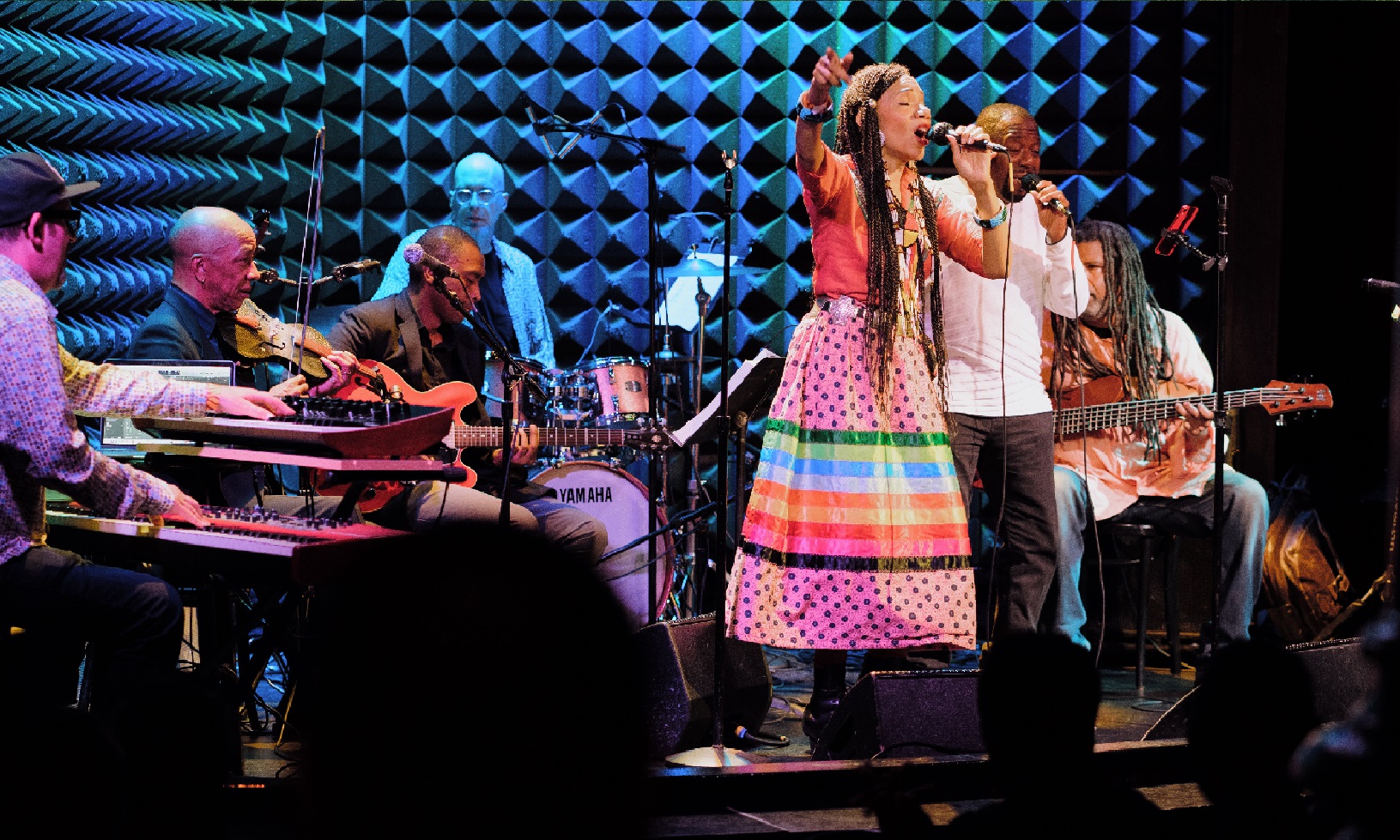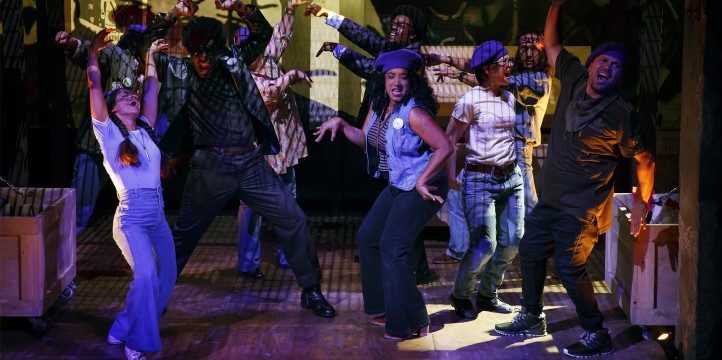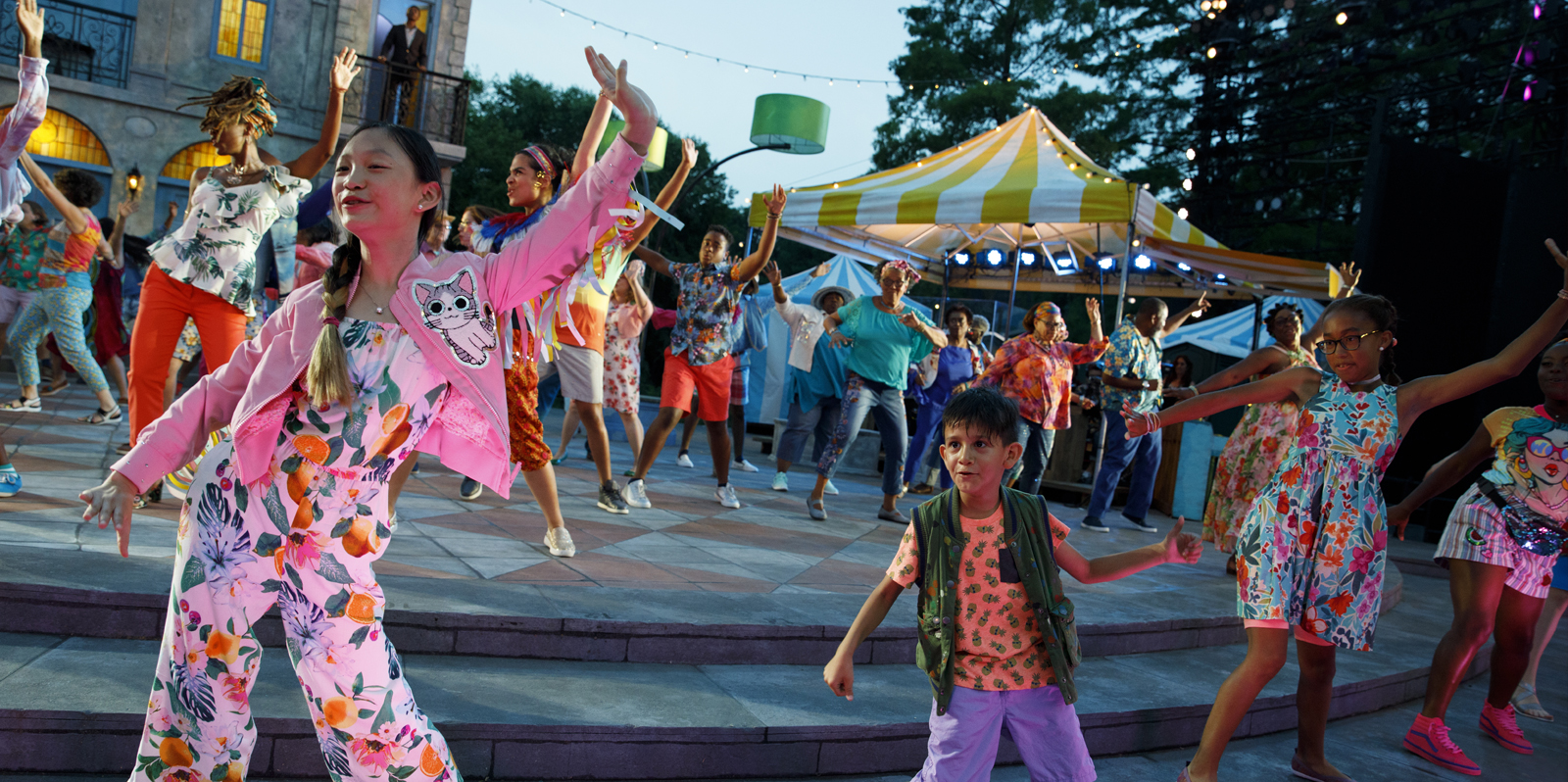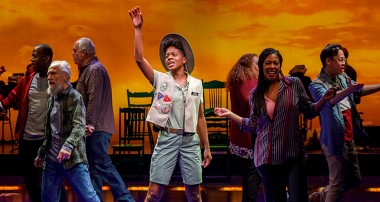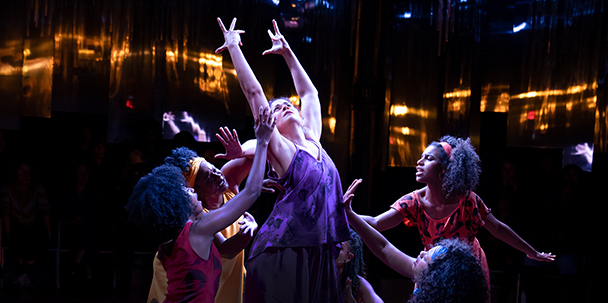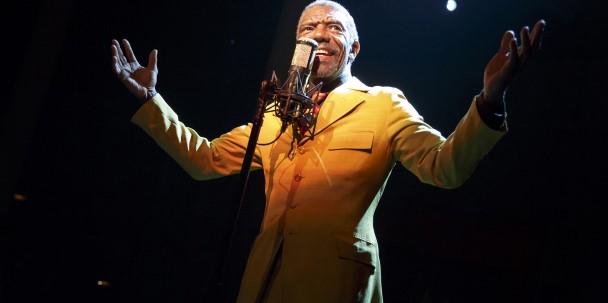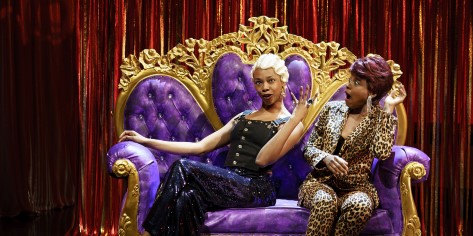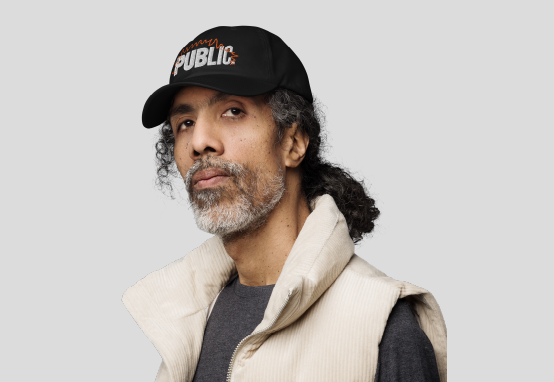March is Women’s History Month; it is a time for recognizing the critical, yet often unrecognized contributions of women both past and present. Ekemini Ekpo spoke with five women employees at The Public, unique in the particularities of their roles, but united in their graciousness and love of the craft.
It’s clear that these women love theater.
One after the other, I had the honor of sitting down virtually with five women whose talent and passion only enriches the art produced by The Public: Kendall Allen (Assistant Production Manager), Trisha Hirano (Finance Associate), Mariana Ortiz (Operations Manager), Carla Posada (Costumes Overhire Staff), and Sacha Wynne (Marketing and Communications Director, Joe’s Pub).
Most of the time, this love was wordless; it was clear in the smiles that weaved their way through the interviews. When words did arise, they were those such as “joy,” “passion,” and soul-fulfilling. When describing the primacy of theater in her life, Kendall Allen noted that “it does often feel like, theater is like my other air…there’s this metaphor where it’s like, ‘if you’ve been living your life inside of a pool, you won’t notice that you’ve been swimming your entire life.’ And so, I feel like theater for me has been like swimming.”
But as romantic as Allen’s words are, making your way through this industry as a woman is not easy, not to mention when issues of sexism intersect with other marginalized identities. Carla Posada, who is Peruvian-born, said, “I still feel sometimes that I don’t quite belong or that I constantly have to justify this space that I’m occupying, both in this country and in the industry within the country.”
Echoing Posada’s feelings of being othered, Trisha Hirano remarked on how scary and isolating it was to be an Asian woman living in New York City in the midst of anti-Asian prejudice and violence, and Mariana Ortiz spoke to the anxieties she felt around communicating in English as a Puerto Rican woman whose first language is Spanish.
So yes, being a woman (in theater) is hard work. In response, to borrow Posada’s words, sometimes you gotta form “your own girl band,” in the form of collaborators and mentors who will either hold the door open behind them or hand you the key with which you can unlock new doors for yourself.
This group has a great deal of love for all the women who work at The Public. As Ortiz put it, “I’m challenged, in a good way, by my women colleagues every single day. I see them and I think to myself, ‘wow, these people are so bright and intelligent, I learn so much’… I’m so grateful to have every one of them.” Allen says, “I know personally I wouldn’t be able to work the way that I do if I didn’t have the team of people behind me, specifically woman-identifying colleagues and queer-identifying colleagues who are supportive, who show affinity, who show care.”
Here is just a sampling of the women who make The Public what it is today:
Isabel Kim (Associate Director, Joe’s Pub), Shareeza Bhola (Senior Director, Communications), Garlia Cornelia Jones (Line Producer), Carla Bianco-Biagini (Executive Assistant to the Executive Director), Praycious Wilson-Gay (Associate Director, Mobile Unit), Emily White (PR & New Media Associate), Keaton Morris-Stan (Production Manager), Melinda Basaca (Associate Costume Shop Manager), Helen Bennett (Director, Operations Administration), Jessica Wang (Board Governance Manager), Tam Shell (Art Director)
Collectively, these women touch nearly every corner of The Public Theater, including departments that my interviewees don't necessarily work in themselves. Which is to say, they are not simply inspiring others by how they do their jobs, but by how they live their lives.
But to be real, no matter how strong your support system is it’s crucial for folks to have tools to care for themselves. Or, as Sacha Wynne put it, “making space for my joy, and my peace and my rest.”
Wynne continued, “I think it’s so easy for women to just get so caught up in our responsibilities to other people, whether that’s our work, our communities, our families, all these things, I just have absolutely been creating some boundaries for myself, around the time I give to myself. And that has exponentially increased my joy lately.”
In service of exponentially increased joy, Wynne’s methods of choice are meditations and affirmations. Ortiz has found that listening to podcasts, in the interest of being a more informed global citizen, is what “[her] body is asking for.”
On the musical side of things, Allen favors artists like Megan Thee Stallion and Lizzo because they “are kind of people who are like 'I’m gonna believe in myself so much, that you have no choice but to believe in yourself as well.'” Posada often turns to Gloria Estefan’s “Hoy,” which elicits spontaneous dancing and love for her homeland in equal measure. On a tired Monday morning, TWICE’s “Can’t Stop Me” is Hirano’s ultimate hype-up song.
I asked all the interviewees what they would tell the younger version of themselves who were just starting out in the theater. Honestly, it’s a tough question; thinking about how much you know now can remind you of how little you knew then. To this point, Ortiz noted, “I wish I was this person in that moment in time, you know what I mean? I wish I had the knowledge I have now, back a few years ago, ten years ago, five years ago, even a year ago.”
But even though we can’t give the gift of hindsight to our former selves, we can give it to those who are now where we were then, however many years ago.
On that note, Hirano remarked, “I found that especially when I was younger, and just getting started in the workplace, I wanted to prove myself, that I am a good worker, so that meant me saying yes a lot to any opportunity that came my way…but what I learned is that for me to produce high-quality work that I can feel proud of, I need to take time for myself to rest and recover, and to find joy outside of work.”
Posada would tell her past self “to not apologize for occupying space in the industry but also in general…I’d just tell my younger self to allow herself to just be and not constantly apologize for just existing”
For Wynne, it is crucial to “just trust yourself and believe in your talents,” which becomes that much more important when you also acknowledge Allen’s view that “this business…needs you—you don’t need it, it needs you.”
One of Ortiz’s first struggles in theater had to do with the act of using her voice, in both a metaphorical sense and in an extremely literal sense. She says, “The main thing that always comes back is do not be afraid to speak up and just say the things that you have in your brain because they are worth saying.”
She’s right. Not only is it worth being said; it’s worth being heard.
……………………………………………………………………………………………………….
Kendall Allen is an Assistant Production Manager at The Public Theater. She’s from Philly. She is a pet and plant mom. She also makes a mean lemon bar.
Trisha Hirano is the Finance Associate at The Public Theater. She is a mezzo-soprano. She may or may not have seen Elton John at the Barclays Center. She owns a number of house plants, including one named “Planty.”
Mariana Ortiz is the Operations Manager at The Public. She listens to The Daily podcast every day. She admires Ruth Bader Ginsburg for the number of doors was able to open for the women who came behind her.
Carla Posada is among the Costumes Overhire Staff at The Public. At times, her job is like being in a girl band. She loves bittersweet songs and trivia quizzes.
Sacha Wynne is the Marketing and Communications Director, Joe’s Pub. Some of her favorite Black feminist authors include Zadie Smith, Esi Edyugan, Claudia Rankine, Toni Morrison, and Alice Walker. She deeply loves being a mom.
Ekemini Ekpo is an actor/singer/writer, Texas-apologist, and reformed Twitter fiend. Catch her online at ekeminiekpo.com or on Instagram @e.u.ekpo
This piece was developed with the BIPOC Critics Lab, a new program founded by Jose Solís training the next generation of BIPOC journalists. Follow on Twitter: @BIPOCCriticsLab.



